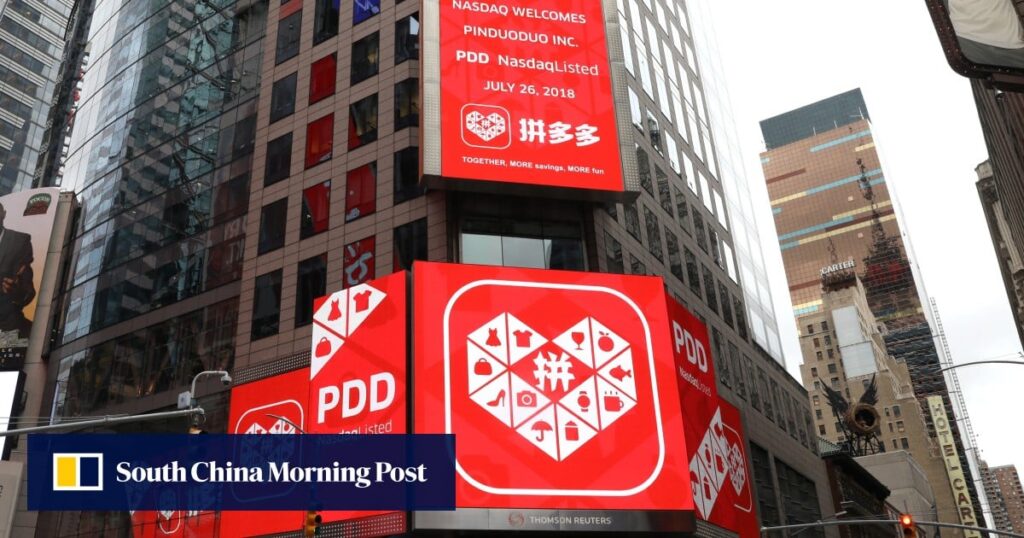Shares in Tem's parent company, PDD Holdings, have been held down by geopolitical risks and fierce competition in China's e-commerce sector.
Indeed, the company's U.S.-listed shares have risen 43% from their March lows, but they still trade at just 13 times next year's expected earnings — half the valuation of the Nasdaq 100 and PDD's biggest discount to date.
That might seem like a great bargain for a company that saw its revenue more than double in the most recent quarter, the second-fastest growing in the tech-heavy index after Nvidia.
Some see the difference as natural, given the harsh trade war rhetoric from both the Chinese government and the candidates in the upcoming U.S. presidential election.
advertisement
advertisement
“People are concerned about election risks and potential tariffs on PDD, leading many to value Temu at zero or even negative,” said Shuyan Feng, deputy general manager of investment management at Huatai Asset Management Co. Ltd. in Hong Kong.
PDD's revenue more than tripled in the quarter ended March as the company successfully deployed its low-cost e-commerce model in overseas markets. Temu's rapid growth has attracted scrutiny from key Western countries and complaints from Europe that China's online marketplace is not protecting consumers.
The problem is even more acute in the United States, where lawmakers claim that Temu and rival Shein are exploiting loopholes to disadvantage American competitors. The U.S. government's recent order to ByteDance to sell TikTok is adding to the pressure on other Chinese internet companies.
Fierce competition within China is also a concern: PDD's biggest rival, Alibaba Group Holding Ltd., saw double-digit growth in total merchandise volume in its most recent quarter after years of ceding market share. Sales growth is also accelerating at JD.com Inc., which has been slashing prices and offering extra perks to lure shoppers.
That's not to say that investors are shying away from PDD: Its 43% gain since March is 10 times the gain of the Nasdaq 100 Index, but its estimated earnings over the same period have risen by much more, nearly 60%.
Goldman Sachs on Friday upgraded PDD to buy from neutral, citing its strong revenue growth and ad tech capabilities. Analyst Ronald Keung said the main negative factors — stiff domestic competition and tensions with the U.S. — are “priced in.”
“China e-commerce has emerged as one of the more undervalued subsectors of China's internet,” Keung wrote in the note. “Given geopolitical uncertainty, investor appetite to fully assess Tem's business potential appears still limited.”
Another reason PDD is likely undervalued is that it has no shareholder return strategy, while companies like Alibaba and Tencent Holdings are buying back billions of dollars worth of stock.
With the exception of PDD, all of the top 15 listed CraneShares CSI China Internet Funds have either stock buyback programs or regular dividend payment policies.
Another factor that could hinder PDD is the lack of clarity in information provided to investors. PDD does not report revenue by geography, making analysis of its business segments difficult.
“The main thing holding back valuation of PDD is the lack of disclosure,” said Xinyao Ng, investment director at Abrdn. “It's very difficult to value domestic PDD and Temu separately. This is important because there is undoubtedly a big geopolitical discount to the share price because of Temu.”


